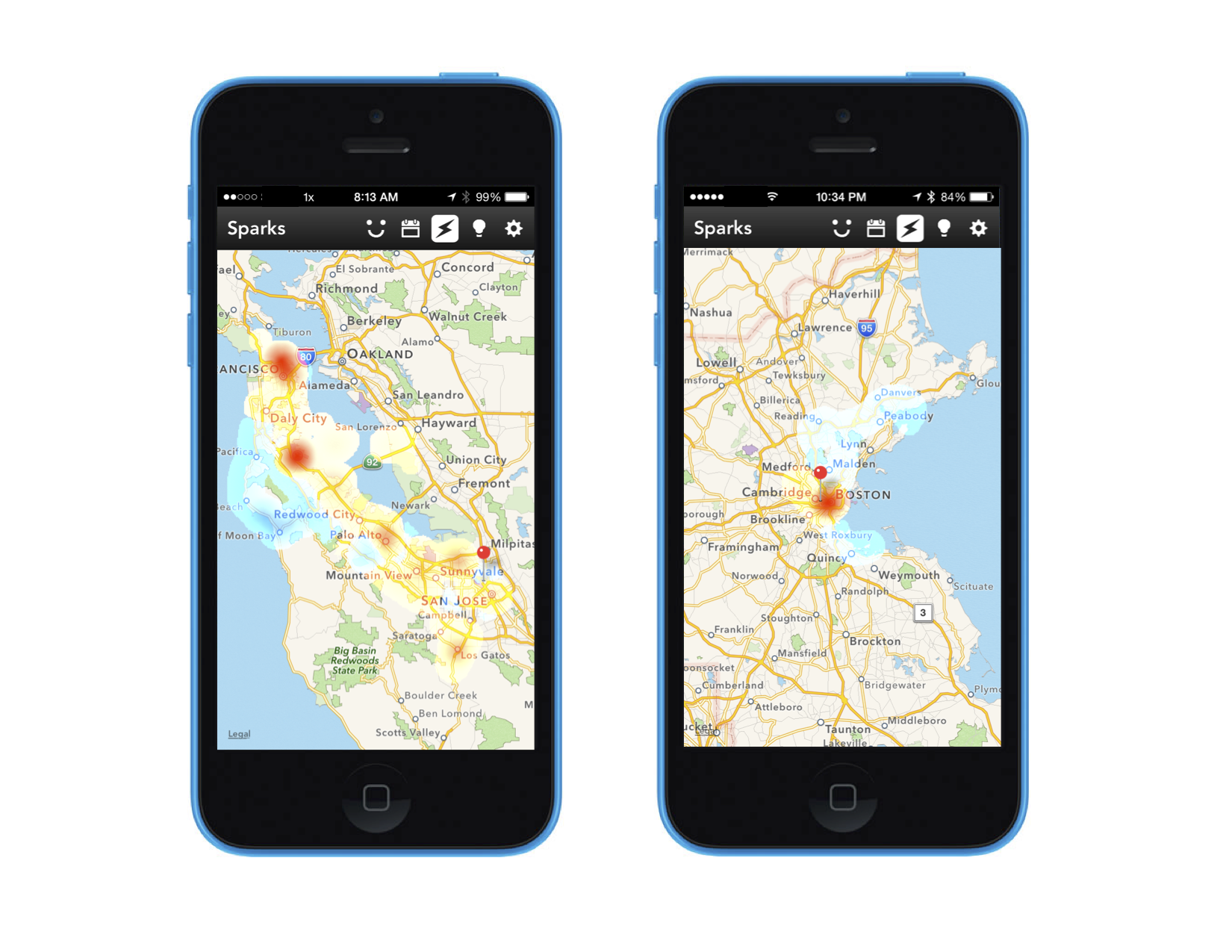“Our ultimate goal is to solve what stress is – for individuals, and for the whole planet.”
That’s what Rob Goldberg told us when we first met him back in August. Rob is a neuroscientist and founder of Boston-based startup, Neumitra. The company builds wearable technology that monitors the physiology of stress, and links it to contextual data from mobile apps (i.e. location) to create personalized stress management tools for individuals.
That data can then be sent to the cloud anonymously where it is aggregated and analyzed to understand how companies, cities, hospitals, universities and the military experience stress in aggregate.
Rob describes how he and his cofounders started on the path to solve stress:
We were inspired by a veteran in Boston and started linking the physiology of stress that comes from the body, with the context of stress that comes from mobile phone applications.
The veteran told us that it took him four years after he came back from Afghanistan to figure out that the local supermarket was causing him flashbacks. Four years. And over the course of those four years, he had many many health concerns.
It wasn’t obvious to him that the local supermarket was causing these problems. But once he got proper treatment, he was able to identify when and where he was experiencing issues.
In talking with this veteran, the group quickly realized they could match the physiology of stress with physical location, which could be very useful in the treatment of post-traumatic stress.
Soon after, Neumitra won a hackathon by showing just that. But rather than stopping there and delivering that information into a clinical study, they realized that information could be applied much more broadly.
So, they started developing wearable technology and a companion app. The company recognized early on that they couldn’t build something that looked like a medical device if people were actually going to use it.
Rob explains why:
People don’t want to answer questions about what they’re wearing and why they’re wearing it.
There is a stigma around stress and stress-based disorders, and people just aren’t willing to talk about it. So we learned we need to make our technology invisible, blending it into what people are already wearing, rather than trying to make it a big deal or a branded product.
That’s why the company started developing embedded biomodules for watches, fitness bands, and jewelry that detect the physiology of stress while it’s happening. Rather than making sounds or requiring a user to pull out their phone, the devices alert them with a subtle vibration when they’re experiencing increased stress.
Early next year, Neumitra is applying their method broadly, launching the Boston Stress Study to understand how stress is felt by different groups of people, and how the population relates to one another based on profession, genetics, socioeconomics and demographics. The ultimate goal is to understand stress across Boston, and then to understand stress all around the world.
The company is currently recruiting their first few thousand participants, but Neumitra users are not required to share their data with the company. Rob explains:
It’s our philosophy that data belongs to the individual, not us, and that the individual gets to decide what to do with it. That’s fundamentally true with everything that we do.
Our technology is built first and foremost for individuals – and they get to decide what to do with their anonymized data. If they don’t want to send it anywhere, then they have a very personalized stress-management tool right on their phone.
However, if an individual does choose to donate their data, then we’re able to show them how they relate to other people right on their smartphone. We’re then able to give population health analytics to organizations, companies, Fortune 500s, and across different industries, universities, hospitals and hospital systems.
In their quest to solve stress, Rob is quick to point out that stress management can mean a lot of things to different people. Rather than trying to distill one version of stress management, Neumitra is creating tools so that people can figure out what works best for them.
Rob likens his users to “citizen scientists,” experimenting and seeing what works best for them. Through a personal app, individuals figure out what helps them manage stress – whether it’s listening to music, going for a walk, playing a game, doing breathing exercises or taking a nap.
We’re excited to see where Neumitra’s innovative solutions will lead, and how they will ultimately help solve stress. If you’re in the Boston area and want to sign up for the Boston Stress Study, learn more here.
